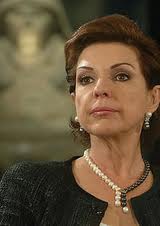May 10th 2011
AETC
The territorial disputes in Latin America have been the reasons for struggles among the countries, except for Brazil, who solved its problems during the beginning of the 20th Century. From Mexico to Argentina, there have been periods of time when the disputes have become from diplomatic complaints to wars, sparking off resentments almost currently unstoppable, among the involved countries.
During this year the territorial disputes have come from Costa Rica-Nicaragua and the revival of the conflict between Bolivia and Paraguay. However, this article is going to be related to a struggle that has lasted 140 years in the agendas of the involved nations: Territorial dispute Chile-Peru, that it might be a problem again with the ratification of the Ecuadorean Nautical Chart by Peruvian President Alan Garcia.
During the 19th Century, Chile fought a war against Lima and La Paz, where the first acquired the coast part of Bolivia and a Peruvian province, since that event, there have been complaints from both latter countries because of the lost territories. The Chile-Peru’s sea territories were agreed by treaties established in 1952 and 1954, which were useful to Ecuador for making its own Nautical Chart with Peru; nevertheless, these agreements are not considered by Lima as territorial settlements but as fishing ones.
In 2008, Peru sued Chile in the International Court of Justice (ICJ or La Haya), complaining 90,000 sq km of territorial sea, causing frictions between the President Alan García and the then President Michelle Bachelet. In March 2011, Ecuador was required as witness to La Haya, but it refused stating that it does not want to get involved in that dispute, by the same way, Ecuador sent a Nautical Chart to the United Nations for avoiding any confrontation on the matter.
On May 5th 2011, Alan Garcia ratified the Ecuadorean Nautical Chart assuring that this will not just provide to Peru additional 4,000 sq km of territorial sea, but more credibility at La Haya, because with this action, the established treaties in 1952 and 1954 are declared invalid. The President added that he hopes the “resignation” of Santiago to the ICJ’s judgment, considering that Chile is now a democratic, modern, civilized country.
It seems that President Alan Garcia is not aware of the Ecuadorean Nautical Chart is fully based on the one that Quito realized after the treaties Lima-Santiago of 1952 and 1954, what it gives more benefits to the Chilean position at the ICJ and not to the Peruvian one. The Chilean Minister of Foreign Relations, Alfredo Moreno, commented that the nautical document ratifies the NON-fishing character of the agreements made 60 years ago.
While the ICJ judges decide whether of both countries are right, the Peruvian President will flight to Ecuador on May 20th for showing off its supposed enormous achievement on the matter: the ratified Ecuadorean Nautical Chart. As well, Alan Garcia will prove that the bilateral relations with President Rafael Correa have managed to reach unprecedented and extraordinary levels after the violent war of Cenepa in 1995.
Probably, Alan Garcia, who will leave the Presidency the next July 28th, will not be the President that will face the La Haya’s decision to the maritime dispute, but one of its successors, may be Ollanta Humala or Keiko Fujimori, who just the first has expressed its anti Chilean speech, being requited by the President Sebastian Piñera, that stated that if Humala won the Presidency, the bilateral relations will be damaged. For instance, a scenario with Humala as President will lead the maritime dispute for more difficulties, no matter what ICJ’s decision would be. Meanwhile, Ecuador has separated itself from any tie it could have with the Peru-Chilean dispute.



